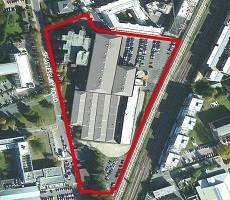April 14, 2015
Cambridge to get new tower as office take up doubles over last decade 0
 Both Oxford and Cambridge are experiencing a huge increase in office take-up, but despite Oxford’s reaching an all-time high last year, it is still three-quarters that of Cambridge. Research by Savills has revealed that Cambridge’s office take-up is double what it was 10 years ago. Now a new 39 metre office tower has been approved by Cambridge City Council which will house Cambridge University’s international exams group, Cambridge Assessment. Called The Triangle site the new building will be situated on Shaftesbury Road in Cambridge, which was previously home to Cambridge University Press’s Edinburgh Building. The new building will be designed to bring together Cambridge Assessment’s locally-based staff, currently based at 11 different sites – into one headquarters by 2018, when staff numbers will be about 2,300.
Both Oxford and Cambridge are experiencing a huge increase in office take-up, but despite Oxford’s reaching an all-time high last year, it is still three-quarters that of Cambridge. Research by Savills has revealed that Cambridge’s office take-up is double what it was 10 years ago. Now a new 39 metre office tower has been approved by Cambridge City Council which will house Cambridge University’s international exams group, Cambridge Assessment. Called The Triangle site the new building will be situated on Shaftesbury Road in Cambridge, which was previously home to Cambridge University Press’s Edinburgh Building. The new building will be designed to bring together Cambridge Assessment’s locally-based staff, currently based at 11 different sites – into one headquarters by 2018, when staff numbers will be about 2,300.


























April 9, 2015
Why Facebook and other tech giants still apply mainstream office design ideas 0
by Charles Marks • Comment, Facilities management, Workplace design
(more…)